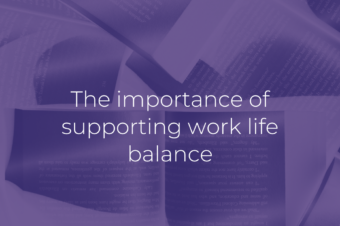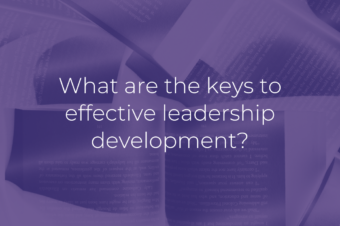
At 10Eighty, we believe that leaders need to focus on creating meaning and purpose and how to motivate, to create an environment conducive to their employees’ physical and mental wellbeing. Engaged employees are energised and therefore agile, creative and loyal.
Leaders need to develop their skills and shift their behaviours to support remote working, reaching out more to employees as individuals, and learning new ways of managing teams. As we move to a hybrid model of working, employees have become clearer and more vocal about what they expect from their leaders.
The pandemic has changed what it means to be an employee in the UK, and leaders need to adapt quickly to manage staff in new ways, including an increased focus on trust, rather than control in developing new ways of working. A forward-thinking leader will empower their team and foster direct communication and a hands-on style access across all levels of the organisation.
Challenging times
There are so many social, political and economic changes at play right now, when I started to list them it was scary; but from climate change through inflation to war in Europe, there is a lot going on that will affect us all, one way or another. Your employees will be affected.
Reactions will vary ranging from anxiety, burn out, depression, fear, trepidation to worry, anger and stress. We all have our own ways of coping, of asking for help and in reacting to the distress of others. If you don’t share the point of view of your colleague that does not invalidate it; you may not fully understand their concerns and circumstances; so empathy, forbearance and fairness are key in handling people management issues.
No employee should feel that they can’t turn to their manager for guidance and support and no manager worth their salt leaves a team member to flounder unless they are floundering themselves. Leadership needs to know what is going on from the top down and provide a focus, redirecting as necessary and supporting where needed.
Focus on the human element
The pandemic made us concentrate on what is important; we worked hard and put on a brave face, but some people struggled. Saying you are fine is not the same as being fine. We are social beings, and we like certainty, camaraderie and collaboration, so it can be difficult to respond effectively to uncertainty, change and volatility on an ongoing basis.
When we are in survival mode it is important to stop and think about the implications of the way we treat people. Keep in touch with your team, question and listen and find out about their circumstances, working conditions, their flexibility and resilience and how well they are really coping.
Stop and listen and process, and rather than just reacting, seek out more information and better understanding. Try not to be judgemental, you need to be sensitive to the specific experience of each employee because we have different drivers, and our externalities are different.
Teamwork and trust
Leading a team is more challenging in a remote or hybrid work environment that has developed after lockdown. Now we are faced with new challenges in terms of the economic environment and energy crisis. It’s a worrying time for employees and a challenge for management and HR to manage and motivate employees.
Leaders and managers need to step up to the plate to make it easier for colleagues and to ensure a sustainable and productive work environment.
This is leadership which rather than command and control puts the focus on collaboration. Agile organisations employ networks of talent, and this is predicated on a creative mindset of partnership, of managing by agreement based on freedom, trust, and accountability.
Engage and communicate
We know that research finds that those CEOs who engage in regular communication with employees, who communicate in an open, transparent, honest manner with warmth, whilst providing as much information as possible, see positive results in employee engagement.
It’s all about your people and ensuring that employees develop a stronger and more meaningful connection to the organisation’s purpose and have a greater desire to help it succeed. They engage more positively with their leaders; are more willing to go the extra mile, and adapt and change direction when asked.
Leadership which has a focus on building human connections is the key to success in a volatile environment. Teams in which members know one another well and understand one another, are high performing, more productive and innovative. To achieve this, you need to increase trust throughout the organisation and ensure leadership is predicated on empathy, openness and honest in order to meet the challenges ahead.








